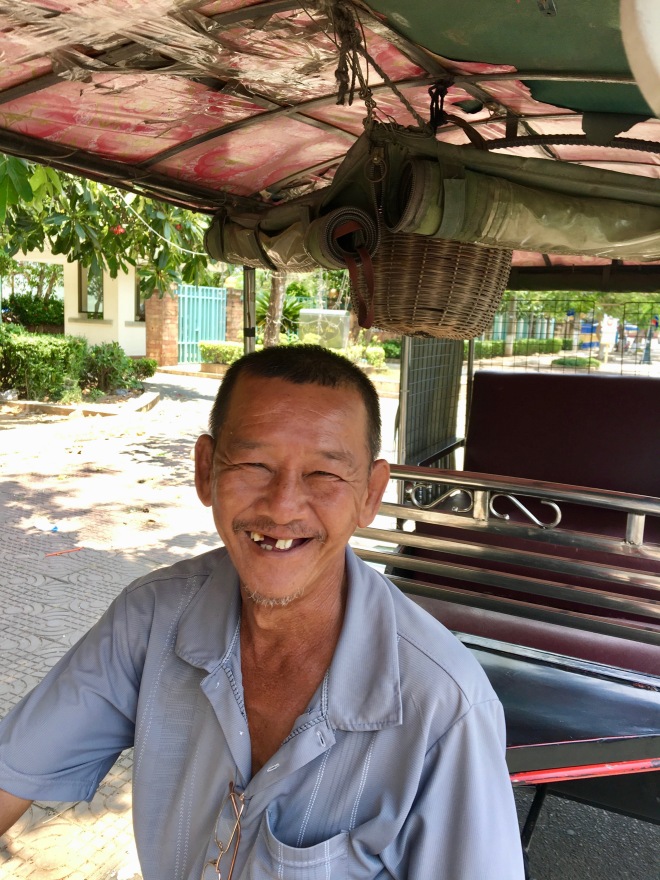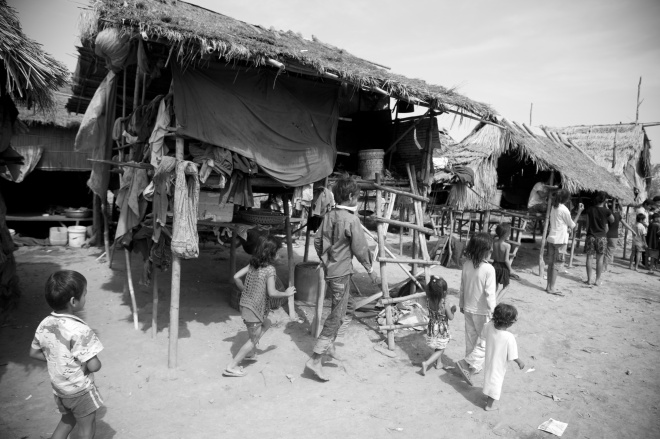Part 2: New York or Bangkok?
(In Part 1, I discuss how exposed to major expense are expats who elect to go without medical insurance tailored to living abroad. I also explain what went into my decision on purchasing a policy.)

One day after surgery. I thank drugs for my smile and the hospital for my fashion statement.
Let me say that I never have thought of myself as the fragile sort of person who could easily break a hip like so many older men and women who topple because their bones give out while they are upright. For them, such a fracture is usually the cause, not the result, of a fall.
After all, as I am inclined to boast, I work out daily with a combination of lifting weights or sweating on an elliptical training machine. Then there are walks of several miles most days as well so as to help me manage my weight.
I also enjoy hiking, frequently upward, on vacations, so I’m unusually fit for someone my age, I like to think.
I confess viewing with horror the prospect of being referred to as “elderly” should I be so described as the victim of a crime or a collision with a motor vehicle.
My level of fitness undoubtedly contributed to my uneventful and quick recovery. My bones, according to my doctor, are strong.
I broke my hip on a Sunday evening in July, and an x-ray Monday morning Continue reading →
 Some of the young Cambodians I encounter are enduring braces in a country where orthodonture and cosmetic repairs are a decided luxury.
Some of the young Cambodians I encounter are enduring braces in a country where orthodonture and cosmetic repairs are a decided luxury.





